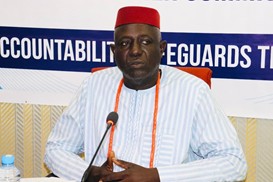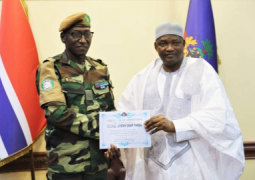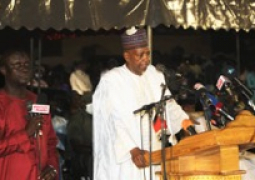
“I was not invited, not promised anything, and not given any official role,” Kora told Counsel. “I only went there out of curiosity to see Kanilai and how things were being done.”
But his curiosity soon turned to concern when he discovered that the cattle were being sold far below their market value.
Upon arriving at Kanilai the former president’s hometown and political stronghold, Kora said he found Registrar General Alieu Jallow overseeing the sales. Among the crowd of buyers, the smell of livestock, one thing caught his attention: the prices.
“I asked Mr. Jallow how much one of the cattle cost, and he said five thousand dalasis,” Kora recounted. “I immediately objected and told him to sell it for twelve thousand. Those were healthy, big animals. Selling them for D5,000 was a loss to the state.”
He highlighted that although Jallow reportedly welcomed his input, the buyers were less impressed. He said some complained that his advice was inflating prices. Yet he said stood by his actions, saying he was only trying to protect public interest.
“Those cattle were public assets, not private property,” he emphasised. “They shouldn’t be sold anyhow. I had to advise him because the price was too low for cattle of that size and quality.”
Kora told cousel that he stayed at the sale for two days, voluntarily helping to guide the process. He said he received no payment or recognition for his efforts, but believed his presence ensured the state earned fairer prices.
“When I wanted to leave, Mr. Jallow didn’t want me to go; he realized I was being helpful on the ground.”




